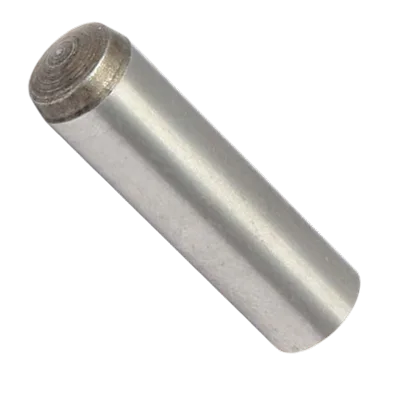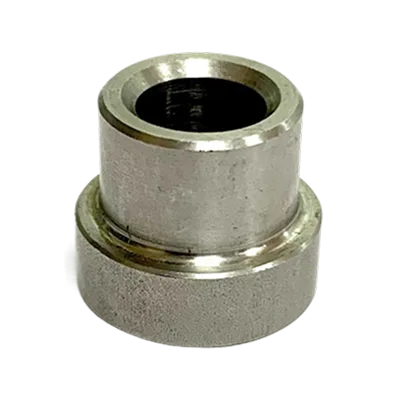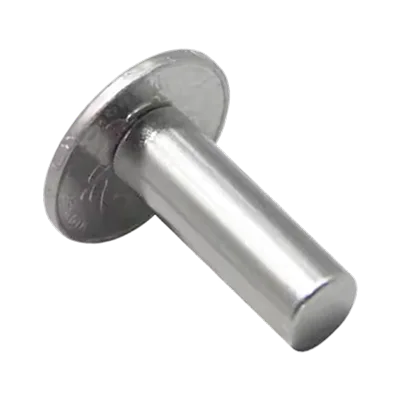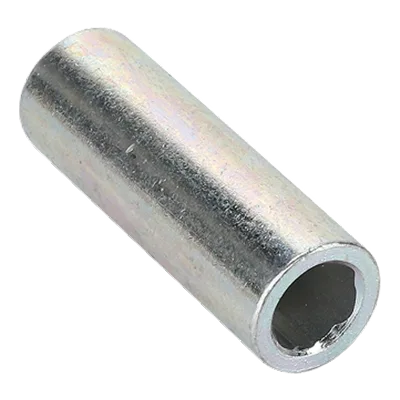
Manufacturer of metal pins in Spain
At Lemec, we are your pin manufacturer in Spain, specialized in the manufacture of metal pins
by cold heading. As an auxiliary industry,
Lemec manufactures to order and following drawings and specifications of each customer, ensuring customized and high quality solutions for your industrial needs, always inbig batches.

Custom pin manufacturing
We offer custom pin manufacturing, fully adapted to the specific requirements of each project.
Our pins are designed and produced to customer specifications, ensuring a perfect fit and optimum performance. Whether you need square pins, knurled pins or any other type, our experience allows us to offer accurate and reliable solutions.
Manufacture of pins in different alloys
Our manufacturing capabilities include the production of pins in a variety of alloys, ensuring the best solution for each application.
Steel pins
The steel pins we manufacture at Lemec are characterized by their strength and durability. They are ideal for applications requiring high load capacity and wear resistance.
Stainless steel pins
Stainless steel pins offer excellent corrosion resistance, making them perfect for harsh environments and applications requiring superior durability.
Aluminum pins
At Lemec, we manufacture aluminum pins that combine lightness and robustness, ideal for applications where weight is a crucial factor without compromising strength.
Brass pins
Brass pins have very good corrosion resistance and are suitable for applications that also require an aesthetic factor.
Frequently Asked Questions
What types of metal pins do you manufacture and when is each type recommended?
• Smooth cylindrical (positioning): used to center and repeat the assembly of parts/tooling.
• Tapered: facilitate self-centering in couplings and alignments.
• Spring/roll pins: absorb tolerances and vibrations in sheet metal or light assemblies.
• With head and/or hole: for retention with ring/clip or for quick assembly/disassembly.
• Special pins: non-standard geometries, sharp edges/chamfers, grooves, knurling, etc.
What fit and tolerances should be selected for positioning pins?
• Removable positioning: hole H7/H8 and pin with h6/h7 tolerance for controlled insertion.
• More secure fixation: combine H7 with m6/g6 (light interference depending on material/diameter).
Reaming of the hole is recommended to ensure roundness and concentricity; chamfering the hole edges avoids burrs and facilitates insertion.
Which process is best for manufacturing custom pins depending on series size and geometry?
• Screw machining/turning: ideal for short or medium runs and special geometries (precise tapers, transverse features, grooves, holes, knurling).
• Grinding: required when h6 tolerance and low surface roughness are needed on the shank; heat treatments and coatings applied depending on required service life.
How should pins be dimensioned to withstand shear and possible bending?
• Select material and hardness according to yield strength and tightening torque of the assembly.
• Dimension the diameter based on the resistant section (∝ D²) and control the free length to avoid buckling/flexing in slender assemblies.
• Ensure correct hole preparation (reaming, roundness, alignment), since poor seating drastically reduces pin capacity.
What information should a drawing include to quote the manufacturing of metal pins?
• Material (carbon steel, stainless steel A2/A4, aluminum, brass, etc.) and heat/surface treatment (black oxide, zinc plating, nickel plating…).
• Shank and head dimensions (if applicable), tolerances (e.g., h6), roughness (Ra), and straightness/ovality.
• Details: chamfers, radii, transverse holes, grooves, conical/spherical ends, markings.
• Service conditions (temperature, corrosion, vibration), production volume, and delivery plan in Spain or for export.








